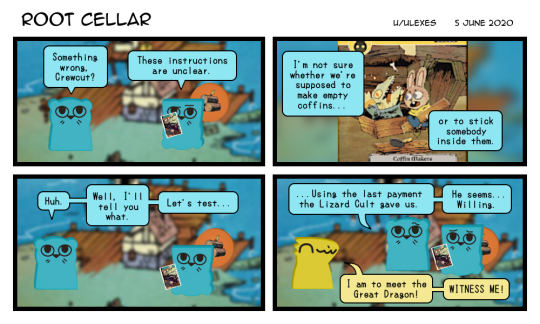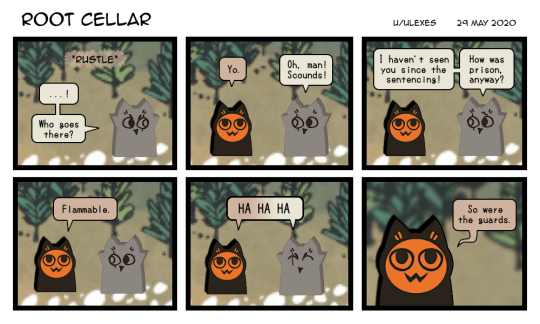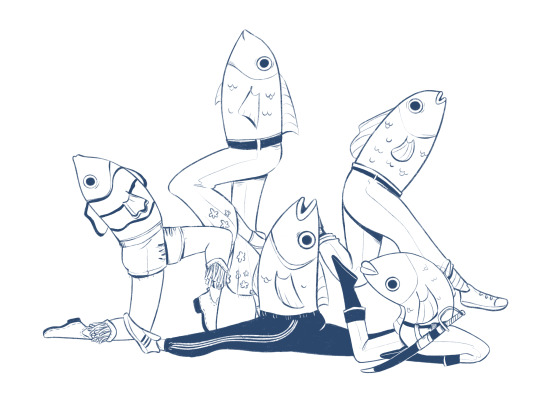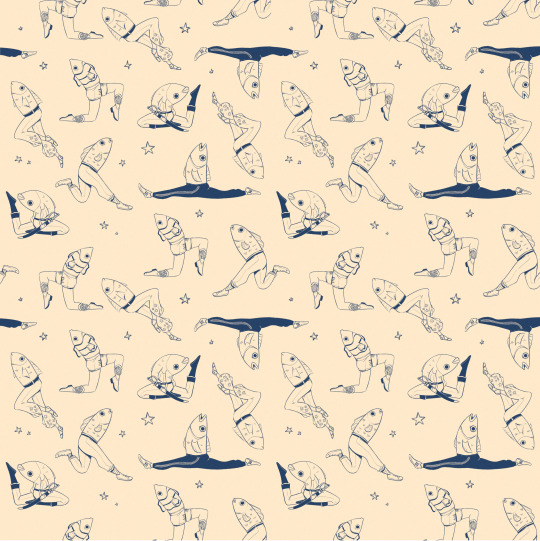World's least talented polymath. Taller and funnier in person.
Don't wanna be here? Send us removal request.
Text
This is one of the finest pieces of games writing I've ever read.
letters from my friend the strangler

1. we glimpse pleasure as we do movements of consciousness: fleetingly, in the creation and destruction of forms. if pleasure couldn't be faked we wouldn't have an entertainment industry. the idea that pleasure is static and knowable and can be doled out in fixed proportions is why we have the sad and mangled little tribe known as videogame players - people driven nuts by a boredom and unhappiness they can't even articulate, since by rights it shouldn't even exist. art as sentimental education; art as an education in pleasure, this thing we don't quite recognize or know what to do with.
2. the idea that the world could be otherwise is the basis of fiction; but as a result we can't look at a work of fiction without knowing that it, too, could be otherwise. that it might be wrong, could be adjusted, that whatever it excludes could have been contained and whatever it contains might just as well have been excluded. to me this is why art can only mean something in a negative sense, by omission or evasion. a mask that doesn't have anything behind it is still a mask. when we put the things we love into fiction we raise the suspicion that they might not be real; when we leave them out we wonder if they might be real, after all.
3. the problem with puzzle games is that their skills translate too well to a CV. art should only ever make you less employable than you were before.
4. condemned to live by metaphors of the balanced checkbook - individual, family, studio and state, all have to make sure the money going out matches the money coming in. yet we survive on dwindling lines of credit extended to us by the dead generations, specifically by actions that themselves refused to make this kind of sense. and the only way to extend credit is by our own actions that make no sense, the ones whose benefit we'll never get to see.
5. when we say experimental art we tend to mean whatever makes no money. and so just by existing this work performs a useful purpose, by demonstrating the gap between what's materially possible and what's economically possible. most people already live and work inside this gap. trying to maintain the facade of self-sufficient economic life, one propped up behind the scenes by innumerable acts of care. but what i appreciate about the experimental is the suggestion this everyday distance is just wider than we know. odd and slippery things rush from it, misshapen, "formless" - we ask ourselves what these are, who they can possibly be for. but just by existing they attain the terrible authority of a thing in the world, an unseen aspect of the universe. experimental art is good because it tells us we don't even know what material possibility might look like.
6. for me, playing a videogame is generally less interesting than remembering one. memory is not "playful" the way videogames try to be - we don't choose or want what sticks with us, and what sticks with us is often what videogames themselves don't seem to choose or want, their clunky material qualities and dead zones. play as a dream of unalienated life becomes grotesque as soon as it's identified with leisure, the other face of work. for me the truth content of videogames is the way that they're unfree, the way they're faithful to an unfree world.
7. the most basic belief in videogame spaces: that what we're doing is basically good, that everything will work out in the end. what kind of games would you make if you no longer believed this was the case?
8. all i want from a videogame is the sense that people making it did things because they wanted to. that they were willing even for a second to omit the guarantees of effort, craft, or form, and bet it all on the strength or folly of their miserable desires.
9. from a comics journal essay on yoshiharu tsuge: "there is a difference between Hollywood talking about making movies (a world involving hundreds of millions of dollars, thousands of people and some of the most recognizable names in the world) and some guy crouching over a table taking pot-shots at someone who snubbed him at a comic con […] the insularity simply feeds into itself, becoming ever more distant from the rest of the world." to me this is the problem of contemporary culture writing in miniature. it craves something more "real" than art, than the aesthetic. but the things it takes as real are themselves abstractions: money, jobs, celebrity. efforts to get real by talking about money will fail if they don't recognize money itself as unreal, a garbled dream of more general productivity; say, the kind embodied by someone making unprofitable comics at the kitchen table, or doing any other kind of work, conversation, thought. good work will not have investor backing. all of it - from local acts of care to organized blockades of port used for weapons shipments, or performing unnamed activities at a healthcare CEO - relies on a recognition that the regime of money is not truly universal, that acts outside its logic can still be performed, even provisionally. compare to a supposedly hardened industry realism that spends all its time weepily combing through box office receipts to find proof of its own experience. art is the opposite of money - something that's not "real" but that nevertheless exists, and which in doing so proves other kinds of realism might be possible.
10. the denial of shared or public life turns into a kind of white flight from communication itself, now seen as hopelessly contaminated by the other. to look someone in the eye and know they're looking back is unendurable. the crying laughing emoji's eyes are shut - the enemy is so far beneath contempt they don't even exist, except as a distant flicker at the edges of this joyous infant world. what's left when communication itself seems a few syllables too close to communism? the endless work of announcing you exist beyond its terms. gurning, sneering, winking at the invisible audience, in your suburban house covered with security cameras.
11. when criticism itself becomes means-testing all we can do is point to the sheer useless abundance of the aesthetic. if despite everything else i still find myself coming back to art, it's because i find attempts to think about it a little less grotesque than attempts not to.
12. we can't buy back our life, it must be stolen.
194 notes
·
View notes
Text
letters from my friend the strangler

1. we glimpse pleasure as we do movements of consciousness: fleetingly, in the creation and destruction of forms. if pleasure couldn't be faked we wouldn't have an entertainment industry. the idea that pleasure is static and knowable and can be doled out in fixed proportions is why we have the sad and mangled little tribe known as videogame players - people driven nuts by a boredom and unhappiness they can't even articulate, since by rights it shouldn't even exist. art as sentimental education; art as an education in pleasure, this thing we don't quite recognize or know what to do with.
2. the idea that the world could be otherwise is the basis of fiction; but as a result we can't look at a work of fiction without knowing that it, too, could be otherwise. that it might be wrong, could be adjusted, that whatever it excludes could have been contained and whatever it contains might just as well have been excluded. to me this is why art can only mean something in a negative sense, by omission or evasion. a mask that doesn't have anything behind it is still a mask. when we put the things we love into fiction we raise the suspicion that they might not be real; when we leave them out we wonder if they might be real, after all.
3. the problem with puzzle games is that their skills translate too well to a CV. art should only ever make you less employable than you were before.
4. condemned to live by metaphors of the balanced checkbook - individual, family, studio and state, all have to make sure the money going out matches the money coming in. yet we survive on dwindling lines of credit extended to us by the dead generations, specifically by actions that themselves refused to make this kind of sense. and the only way to extend credit is by our own actions that make no sense, the ones whose benefit we'll never get to see.
5. when we say experimental art we tend to mean whatever makes no money. and so just by existing this work performs a useful purpose, by demonstrating the gap between what's materially possible and what's economically possible. most people already live and work inside this gap. trying to maintain the facade of self-sufficient economic life, one propped up behind the scenes by innumerable acts of care. but what i appreciate about the experimental is the suggestion this everyday distance is just wider than we know. odd and slippery things rush from it, misshapen, "formless" - we ask ourselves what these are, who they can possibly be for. but just by existing they attain the terrible authority of a thing in the world, an unseen aspect of the universe. experimental art is good because it tells us we don't even know what material possibility might look like.
6. for me, playing a videogame is generally less interesting than remembering one. memory is not "playful" the way videogames try to be - we don't choose or want what sticks with us, and what sticks with us is often what videogames themselves don't seem to choose or want, their clunky material qualities and dead zones. play as a dream of unalienated life becomes grotesque as soon as it's identified with leisure, the other face of work. for me the truth content of videogames is the way that they're unfree, the way they're faithful to an unfree world.
7. the most basic belief in videogame spaces: that what we're doing is basically good, that everything will work out in the end. what kind of games would you make if you no longer believed this was the case?
8. all i want from a videogame is the sense that people making it did things because they wanted to. that they were willing even for a second to omit the guarantees of effort, craft, or form, and bet it all on the strength or folly of their miserable desires.
9. from a comics journal essay on yoshiharu tsuge: "there is a difference between Hollywood talking about making movies (a world involving hundreds of millions of dollars, thousands of people and some of the most recognizable names in the world) and some guy crouching over a table taking pot-shots at someone who snubbed him at a comic con […] the insularity simply feeds into itself, becoming ever more distant from the rest of the world." to me this is the problem of contemporary culture writing in miniature. it craves something more "real" than art, than the aesthetic. but the things it takes as real are themselves abstractions: money, jobs, celebrity. efforts to get real by talking about money will fail if they don't recognize money itself as unreal, a garbled dream of more general productivity; say, the kind embodied by someone making unprofitable comics at the kitchen table, or doing any other kind of work, conversation, thought. good work will not have investor backing. all of it - from local acts of care to organized blockades of port used for weapons shipments, or performing unnamed activities at a healthcare CEO - relies on a recognition that the regime of money is not truly universal, that acts outside its logic can still be performed, even provisionally. compare to a supposedly hardened industry realism that spends all its time weepily combing through box office receipts to find proof of its own experience. art is the opposite of money - something that's not "real" but that nevertheless exists, and which in doing so proves other kinds of realism might be possible.
10. the denial of shared or public life turns into a kind of white flight from communication itself, now seen as hopelessly contaminated by the other. to look someone in the eye and know they're looking back is unendurable. the crying laughing emoji's eyes are shut - the enemy is so far beneath contempt they don't even exist, except as a distant flicker at the edges of this joyous infant world. what's left when communication itself seems a few syllables too close to communism? the endless work of announcing you exist beyond its terms. gurning, sneering, winking at the invisible audience, in your suburban house covered with security cameras.
11. when criticism itself becomes means-testing all we can do is point to the sheer useless abundance of the aesthetic. if despite everything else i still find myself coming back to art, it's because i find attempts to think about it a little less grotesque than attempts not to.
12. we can't buy back our life, it must be stolen.
194 notes
·
View notes
Text
https://aeneas-nin.itch.io/haiku-topic-engine
4 notes
·
View notes
Text
0 notes









